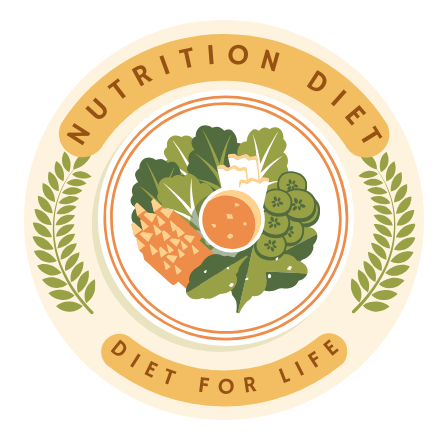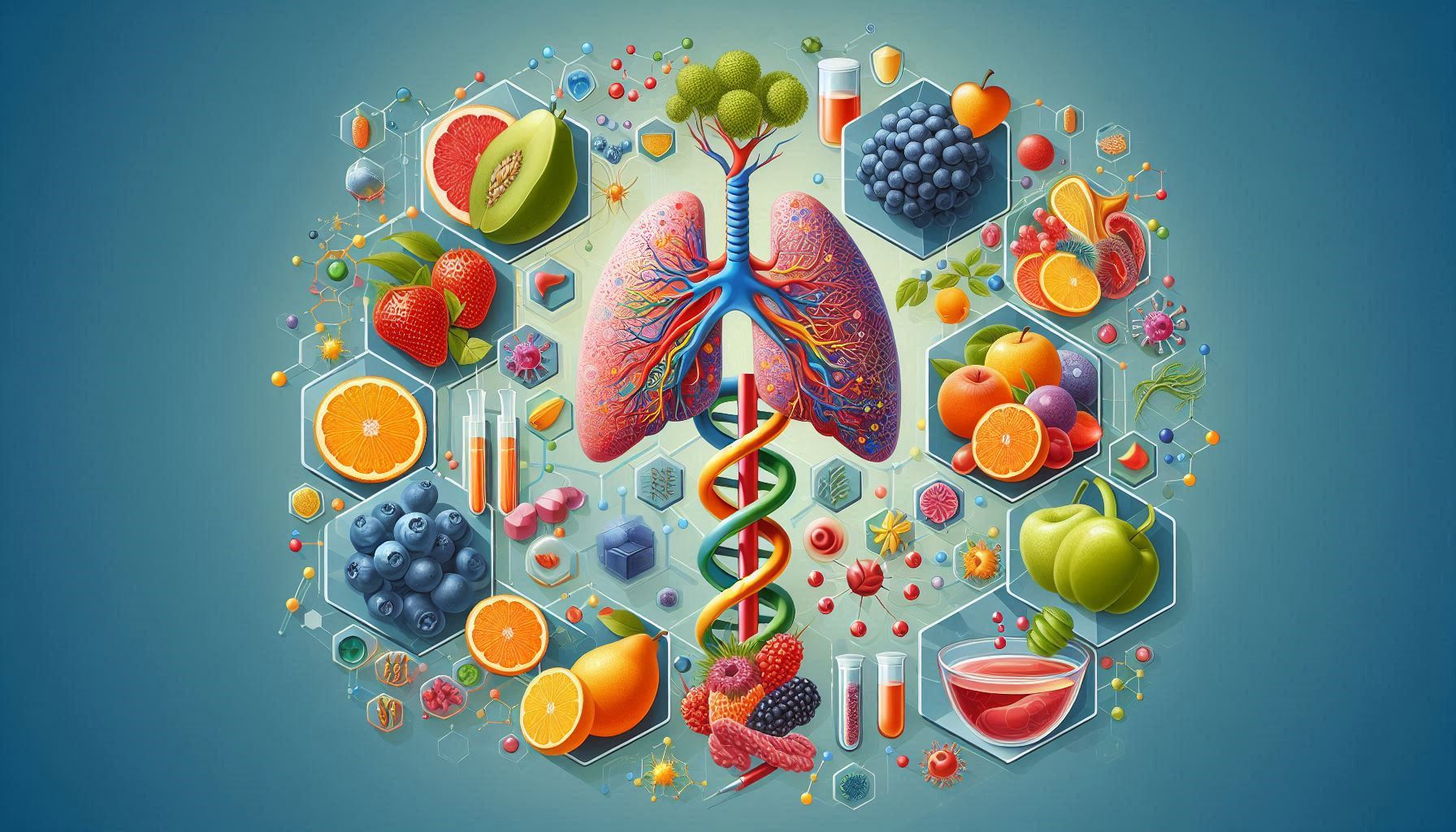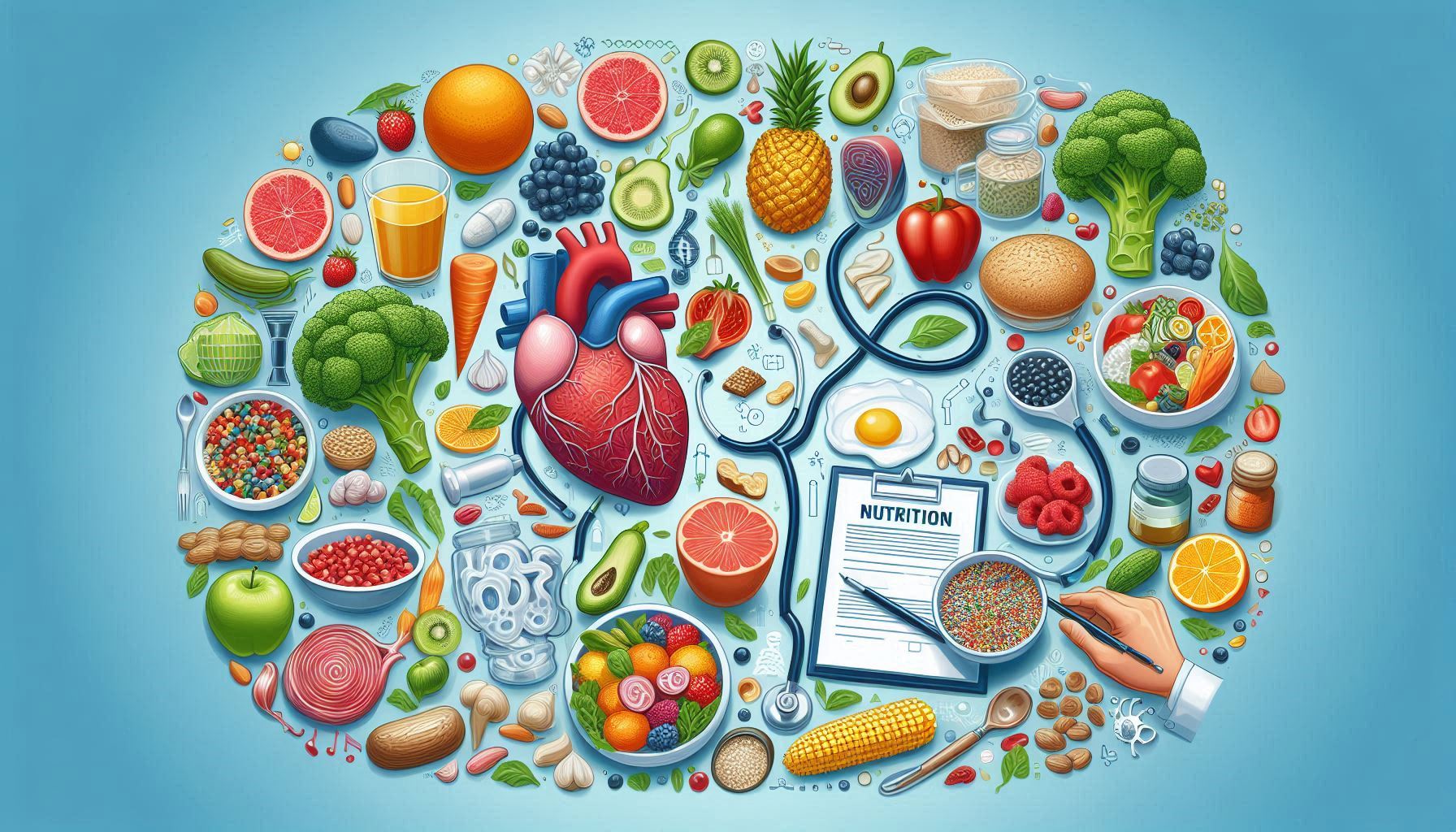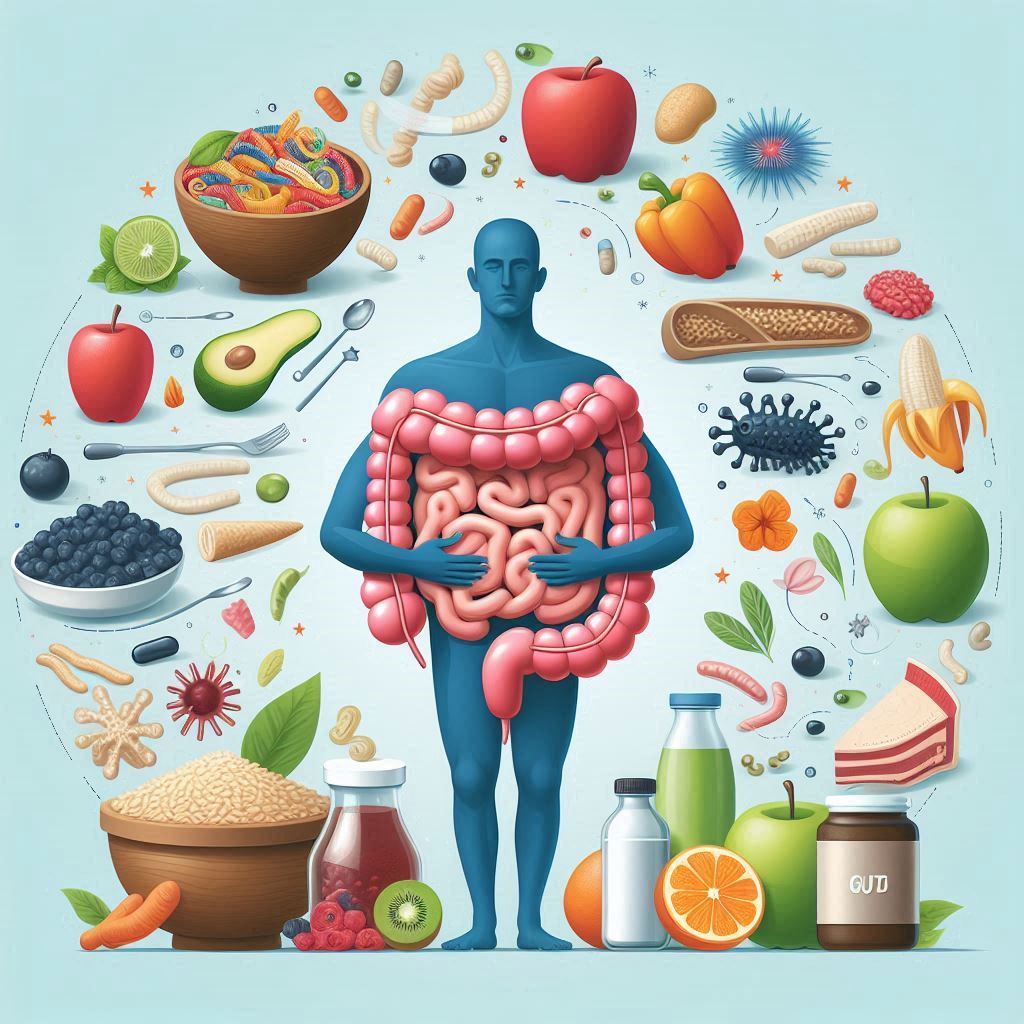In the modern world, we are surrounded by a wealth of food options. From ultra-processed snacks to fast food chains, it’s easy to fall into the trap of convenience over nutritional quality. However, the importance of a balanced diet cannot be overstated. What we eat has a profound impact on almost every aspect of our lives, from our physical health to our mental well-being. In this article, we will explore the essential components of balanced nutrition, the benefits of eating a well-rounded diet, the role of various nutrients in bodily functions, and the consequences of poor nutrition. Additionally, we will provide practical advice for achieving and maintaining a healthy diet in a fast-paced world.
What Is Balanced Nutrition?
Balanced nutrition is the concept of providing the body with a variety of nutrients in appropriate amounts to ensure proper growth, energy, and overall health. A balanced diet supports bodily functions, prevents diseases, enhances energy levels, and promotes mental clarity. Rather than focusing on eliminating specific food groups or opting for extreme diets, balanced nutrition encourages the consumption of a wide range of foods, ensuring that you meet your body’s specific needs.
At the core of a balanced diet are macronutrients, such as carbohydrates, proteins, and fats, along with micronutrients, including vitamins and minerals, all of which play distinct and critical roles in health. A well-balanced diet also requires adequate hydration through water, which is essential for nearly every function in the body.
The Four Core Components of Balanced Nutrition
A balanced diet consists of several key components. These include macronutrients (carbohydrates, proteins, and fats), micronutrients (vitamins and minerals), and water. Together, these components work to fuel the body, support bodily systems, and prevent illness.
1. Carbohydrates: The Body’s Primary Energy Source
Carbohydrates are the primary source of energy for the body. Upon digestion, carbohydrates break down into glucose, which is used by cells as fuel for energy production. Carbohydrates are essential for brain function, muscle activity, and other vital processes. However, not all carbohydrates are created equal.
There are two main types of carbohydrates:
- Simple carbohydrates: These are sugars that provide quick energy. Examples include table sugar, syrups, and refined grains like white bread and white rice. While simple carbs are quickly absorbed into the bloodstream, they provide little nutritional value beyond short-term energy.
- Complex carbohydrates: These are starches and fibers found in whole grains, legumes, fruits, and vegetables. They take longer to break down, providing a more steady, sustained release of energy. Additionally, complex carbs often contain fiber, which is essential for digestive health and regulating blood sugar levels.
For a balanced diet, it is important to emphasize complex carbohydrates and avoid excessive intake of simple sugars. Whole grains like quinoa, brown rice, and whole-wheat bread, as well as starchy vegetables like sweet potatoes, offer rich sources of fiber and essential nutrients.
2. Proteins: Building Blocks of the Body
Proteins are essential for growth, tissue repair, immune function, and enzyme production. The body uses proteins to create new cells, repair damaged tissues, and produce antibodies that help fight infections. Protein is also crucial for maintaining muscle mass, particularly in periods of growth or recovery from illness or exercise.
Proteins are made up of amino acids, and there are 20 different amino acids, of which nine are considered essential. These essential amino acids must be obtained through food, as the body cannot produce them. Protein-rich foods include:
- Animal-based proteins: Lean meats (chicken, turkey, beef), fish, eggs, dairy products (milk, cheese, yogurt).
- Plant-based proteins: Legumes (lentils, chickpeas, beans), tofu, tempeh, quinoa, nuts, seeds, and certain whole grains like buckwheat.
For a balanced diet, it’s essential to incorporate both animal and plant-based sources of protein. Plant-based proteins often come with added fiber, antioxidants, and other nutrients that promote overall health.
3. Fats: Healthy Fats for Optimal Function
Fats are often misunderstood, but they play an essential role in the body. Healthy fats help in the absorption of fat-soluble vitamins (A, D, E, and K), protect organs, regulate hormones, and support brain function. While fats are a concentrated source of energy, it’s important to choose the right types of fat.
Fats are divided into three primary categories:
- Unsaturated fats: These are considered the “good” fats. They are found in plant-based oils (like olive oil), nuts, seeds, avocados, and fatty fish (such as salmon and mackerel). Unsaturated fats help improve cholesterol levels, reduce inflammation, and support heart health.
- Saturated fats: These fats are typically found in animal products like fatty meats, butter, cheese, and some tropical oils (coconut oil and palm oil). While saturated fats can be part of a healthy diet in moderation, excessive consumption may lead to elevated cholesterol levels and increased risk of heart disease.
- Trans fats: These are artificially created fats found in many processed foods and baked goods. Trans fats should be avoided as much as possible due to their strong association with an increased risk of heart disease.
Incorporating healthy fats into your diet helps in maintaining heart health, supporting cognitive function, and regulating body temperature. Foods like nuts, seeds, olive oil, avocados, and fatty fish should be prioritized over processed fats.
4. Vitamins and Minerals: Micronutrients for Body Function
Vitamins and minerals are essential for a wide range of functions, from energy production to immune defense, bone health, and beyond. Unlike macronutrients, vitamins and minerals are required in smaller amounts but are equally critical to maintaining overall health.
Some important vitamins and minerals include:
- Vitamin A: Supports immune function, vision, and skin health. Found in orange and yellow fruits and vegetables (such as carrots, sweet potatoes, and cantaloupe), as well as leafy greens.
- Vitamin C: Crucial for immune health, skin elasticity, and wound healing. Found in citrus fruits, strawberries, bell peppers, and leafy greens.
- Vitamin D: Important for bone health and calcium absorption. Vitamin D can be obtained through exposure to sunlight, fortified foods, and fatty fish.
- Calcium: Essential for bone health and muscle function. Found in dairy products, leafy greens, and fortified plant-based milk alternatives.
- Iron: Vital for oxygen transport in the blood. Found in red meat, poultry, beans, lentils, and fortified cereals.
- Magnesium: Plays a role in muscle and nerve function, as well as energy production. Found in nuts, seeds, whole grains, and leafy vegetables.
To ensure adequate micronutrient intake, it’s important to consume a varied diet that includes a wide range of colorful fruits and vegetables, whole grains, and lean proteins.
5. Water: Hydration for Health
Water is often overlooked in discussions about nutrition, but it is arguably the most important component of a balanced diet. Water supports digestion, regulates body temperature, helps in the transport of nutrients, and aids in detoxification. Proper hydration is critical for maintaining energy levels, mental clarity, and skin health.
The amount of water needed varies based on age, sex, activity level, and climate. However, a general guideline is to aim for at least 8 cups (64 ounces) of water per day. Additional hydration may be necessary if you are physically active or live in a hot climate.
It’s also important to recognize that water isn’t the only source of hydration. Many fruits and vegetables, such as watermelon, cucumber, and oranges, have high water content and can contribute to your daily hydration needs.
The Benefits of a Balanced Diet
Maintaining a balanced diet has numerous short-term and long-term benefits for both physical and mental health. Let’s explore some of these benefits in detail.
1. Improved Physical Health and Weight Management
A balanced diet helps the body maintain a healthy weight by providing the necessary nutrients while avoiding excess calories. Consuming nutrient-dense foods rich in fiber, protein, and healthy fats promotes satiety, reducing the temptation to overeat. Additionally, by focusing on whole, unprocessed foods, you can avoid the empty calories found in sugary and highly processed snacks that contribute to weight gain.
A healthy weight helps reduce the risk of various health issues, such as obesity, heart disease, stroke, type 2 diabetes, and certain types of cancer. Achieving and maintaining a healthy weight enhances energy levels and supports mobility and general quality of life.
2. Enhanced Mental Health and Cognitive Function
Nutritional intake has a profound impact on mental health. Certain nutrients play a significant role in mood regulation, stress management, and cognitive function. For example, omega-3 fatty acids found in fatty fish, walnuts, and flaxseeds are essential for brain health and are linked to improved mood and cognitive function. Similarly, B vitamins, particularly B6 and B12, help regulate neurotransmitters that influence mood and energy.
The gut-brain connection is another area of growing research, showing that a healthy gut microbiome can positively affect mental health. A diet rich in fiber, fermented foods (like yogurt, kefir, and kimchi), and prebiotics can help nourish gut bacteria, which, in turn, may have a positive impact on mental well-being.
3. Boosted Immune System
A balanced diet is crucial for maintaining a strong immune system. Vitamins and minerals like vitamin C, vitamin D, zinc, and iron support immune cells and their ability to fight off infections. Consuming a variety of colorful fruits and vegetables ensures an abundance of antioxidants, which help to reduce inflammation and oxidative stress that can weaken the immune system.
Additionally, a diet that includes healthy fats, such as omega-3 fatty acids, can help modulate immune responses, reducing the risk of chronic inflammation and autoimmune diseases.
4. Better Digestion and Gut Health
The role of diet in digestion cannot be overstated. Fiber, found in whole grains, fruits, vegetables, and legumes, plays a central role in promoting healthy digestion by preventing constipation, regulating blood sugar levels, and supporting beneficial gut bacteria. A healthy gut microbiome is essential for nutrient absorption, immune function, and even mental health.
Incorporating probiotics (such as yogurt and fermented foods) and prebiotics (found in foods like garlic, onions, and bananas) can further support digestive health and the maintenance of a healthy gut flora.
5. Reduced Risk of Chronic Diseases
A balanced diet is one of the most effective ways to prevent chronic diseases. Eating a variety of nutrient-rich foods helps reduce the risk of conditions like cardiovascular disease, diabetes, high blood pressure, and some cancers. For example, diets high in fiber and antioxidants have been shown to lower cholesterol levels, reduce blood pressure, and prevent the onset of diabetes.
A diet rich in fruits, vegetables, lean proteins, and healthy fats promotes overall health and longevity. The Mediterranean diet, which is abundant in whole foods like fruits, vegetables, nuts, olive oil, and fish, has long been associated with a reduced risk of heart disease and other chronic conditions.
Practical Tips for Achieving Balanced Nutrition
Achieving a balanced diet doesn’t have to be complicated. Here are some practical tips to help you get started:
- Eat a Variety of Foods: Aim to include a wide range of different foods in your diet, ensuring that you get a broad spectrum of nutrients. Focus on whole, unprocessed foods like fruits, vegetables, whole grains, lean proteins, and healthy fats.
- Control Portion Sizes: Eating balanced meals doesn’t mean overeating. Pay attention to portion sizes to avoid excessive calorie intake, especially from high-fat and high-sugar foods.
- Stay Hydrated: Drink plenty of water throughout the day. Limit sugary drinks, sodas, and excessive caffeine consumption, as they can contribute to dehydration and provide little nutritional value.
- Plan Your Meals: Planning meals ahead of time can help you make healthier choices, avoid fast food, and prevent impulse eating. Batch cooking and meal prepping are effective ways to ensure you always have balanced meals ready to go.
- Limit Processed Foods: While convenience foods can be tempting, they are often packed with unhealthy fats, added sugars, and salt. Whenever possible, opt for fresh, whole ingredients.
- Incorporate Healthy Snacks: Healthy snacks, like a handful of nuts, a piece of fruit, or some yogurt, can help curb hunger between meals and provide a boost of energy and nutrients.
The Consequences of Poor Nutrition
Failing to maintain a balanced diet can have significant consequences on both physical and mental health. Some of the risks of poor nutrition include:
- Obesity: Consuming excess calories, especially from processed and sugary foods, can lead to weight gain and obesity, which in turn increases the risk of numerous health conditions like type 2 diabetes, heart disease, and joint problems.
- Nutrient Deficiencies: A poor diet may result in deficiencies in essential vitamins and minerals, leading to conditions such as anemia (due to iron deficiency), scurvy (due to vitamin C deficiency), or rickets (due to a lack of vitamin D).
- Weakened Immune System: A diet low in essential nutrients like vitamins A, C, and D, as well as zinc, can impair immune function, leaving the body more vulnerable to infections.
- Chronic Disease: Poor dietary choices are linked to an increased risk of chronic diseases such as heart disease, stroke, and cancer. Excessive consumption of unhealthy fats, sugars, and salt can contribute to high blood pressure, high cholesterol, and insulin resistance.
Conclusion
Balanced nutrition is essential for maintaining overall health, supporting bodily functions, and preventing chronic diseases. By consuming a variety of nutrient-dense foods, staying hydrated, and making mindful choices about the types of foods you eat, you can promote long-term health and well-being. Whether you’re trying to improve physical health, boost energy levels, enhance mental clarity, or reduce the risk of disease, a balanced diet can make all the difference. Embrace a balanced approach to eating, and you’ll reap the countless benefits of better health and quality of life.
SOURCES
Alfano, C. M. & Schoenborn, C. A. (2014). Health behaviors of adults: United States, 2008-2010. National Center for Health Statistics.
Anderson, J. W., Baird, P. A., Dubeau, P. F., Finkelstein, J. C., & Pappas, T. (2009). Health benefits of dietary fiber. Nutritional Reviews, 67(4), 188-193.
Bohn, T., Berenbaum, M. C., & Bey, P. M. (2016). The effects of dietary antioxidants on human health: Mechanisms and disease prevention. Nutrition Reviews, 74(12), 827-835.
Goff, L. M., & Fraser, G. E. (2007). Effects of a vegetarian diet on the incidence of ischemic heart disease and cancer: A 10-year follow-up study. American Journal of Clinical Nutrition, 86(1), 153-161.
Harvard T.H. Chan School of Public Health (2020). The Nutrition Source: Healthy Eating Plate. Harvard T.H. Chan School of Public Health.
Haskell, W. L., Lee, I. M., Pate, R. R., Powell, K. E., Berry, J. T., & Christensen, D. (2007). Physical activity and public health: Updated recommendation for adults from the American College of Sports Medicine and the American Heart Association. Circulation, 116(9), 1081-1093.
Jiang, R., Miller, A. W., Pelegrin, M., & Holman, R. H. (2016). Mediterranean diets and cardiovascular health. European Heart Journal, 37(20), 1375-1382.
Lichtenstein, A. H., & Harmatz, M. (2013). The importance of a balanced diet in disease prevention and treatment. American Journal of Clinical Nutrition, 98(2), 405-410.
Liu, R. H. (2013). Health benefits of fruits and vegetables are from additive and synergistic combinations of phytochemicals. The American Journal of Clinical Nutrition, 78(3), 549-555.
Micha, R., Peñalvo, J. L., Cavanagh, M., & Lai, S. (2017). Association between dietary factors and mortality from heart disease, stroke, and type 2 diabetes in the United States. JAMA, 317(9), 912-924.
Micha, R., Shulkin, M., & Weber, M. (2017). Dietary patterns and disease: The role of nutrition in chronic disease prevention. Lancet Diabetes Endocrinol, 5(12), 870-880.
Micha, R., Peñalvo, J. L., Cavanagh, M., & Lai, S. (2017). Global dietary intake and chronic diseases. The Lancet, 392(10147), 940-954.
Ros, E. (2010). Health benefits of nut consumption. Nutritional Reviews, 68(3), 65-75.
Swaminathan, R. (2011). Nutritional significance of micronutrients in the human diet. Journal of Nutrition, 68(2), 119-125.
Willett, W. C., Sacks, F. M., Trichopoulos, D., & Leveille, G. A. (2006). The role of diet in chronic disease prevention and health promotion. Journal of Nutrition, 136(11), 2769S-2778S.
World Health Organization (WHO) (2018). Healthy diet. World Health Organization.
HISTORY
Current Version
November 18, 2024
Written By:
SUMMIYAH MAHMOOD




